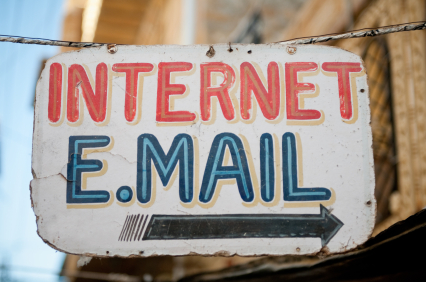What I've Learned In Business: Don't Do Tryouts
This article is part of an occasional series about what I’ve learned from running a business. You can read other articles in this series here.
In a classic apocryphal tale, it’s said that Winston Churchill once asked a woman whether she would consent to having sex with him for one million pounds. “For one million pounds, yes!” she allegedly replied. “Now that we’ve established what you are,” Churchill retorted, “let’s negotiate the price.”
I occasionally think of that story when a potential client suggests I do work for them at a discounted rate as a “tryout.” That suggestion usually comes in one of two ways.
1. “If you do a good job, there may be other opportunities down the road for your regular fee.”
If you do discounted work the first time, you’ve established yourself as someone who is willing to accept work at a figure lower than your usual fee. In my experience, it’s not always easy to take a client from the discounted rate to a full fee; once you’ve set the lower rate, that becomes the figure from which future negotiations begin.
Plus, this statement is almost always true. If you do a good job, it sets you up for the possibility of future work; if you don’t, you probably won’t get additional work. You don’t need a tryout for that to be true.
When running a business, you constantly have to decide what represents the best use of your time. I’d rather hold out for a potentially great fit—a long-term client that offers interesting work and pays full price—than take a series of low-paying consulting gigs.
This is especially true for established consultancies. In my firm’s case, for example, we’ve published a book, more than 800 blog posts, and more than a dozen videos. In addition, we’re happy to send clients a detailed proposal and discuss potential work by phone, email, Skype, or in-person. All of that should give clients a good sense of our work and help obviate the need for a tryout. If we haven’t earned our full fees after offering that much information, well, it’s probably not the right fit for us.
2. “There will be other potential clients in the room, so this would be great exposure for you.”
Actually, this may be true. But that line makes me bristle anyway, and I usually don’t find it persuasive.
I’d never walk into a car dealership and say, “I’d like this new car, but I want it for half price. A lot of people in my neighborhood will see me driving it, and I’ll tell them I bought it here. It will be great exposure for you.”
Here’s the problem: When people say that, they’re often revealing a mentality that suggests they don’t see the full value we deliver. And why would I want to begin a client engagement that way?
Here’s an interesting thing I’ve discovered along the way: When I politely decline discounted work, a fair share of potential clients suddenly find the full fee in their budgets. Of course, it should go without saying that if we’re going to hold the line on our fees, we better meet or exceed the client’s expectations every time.
A Few Exceptions
I know this mentality probably sounds a bit strident, and I understand that there are a few times this mindset shouldn’t apply:
- You’re a new company and need to build a portfolio and gain experience (even then, I’d negotiate the price to something between your full fee and their proposed discounted rate)
- You’re dealing with a cause you deeply believe in and recognize that the organization is legitimately cash-strapped
- You’re being considered by a dream client, and there’s no way you can earn the business without a discount (again, I would still negotiate the fee, even if you settle for something less than your full rate; you can also look for non-cash ways to recover some of your fee, such as a table for book sales, a testimonial, a link from their homepage, or a mention in their annual report)
That’s what I think. What do you think? Please add your own thoughts and experiences to the comments section below!



I couldn’t agree with this post more. As a Voice Over Actor I have a client who always wants to “get my read” of a script with very little pay. An audition where I provide a sample is one thing, but a full read of a script is something different altogether. Usually, it’s followed up by your #1 point, “This could lead to more down the road”. That hasn’t happened yet.
I suppose it happens in all industries. I have a friend who is a photographer who found this. Perhaps you’ve seen this, but I feel it sums up your point well.
http://petapixel.com/2011/10/05/photographer-looking-for-people-to-do-their-job-without-pay/
Thanks for this Brad. Kudos.
We’ve had very similar experiences. Discounted rates are b.s.
We have a trial/probationary period where either client or agency can walk away without incurring much pain, but it is still billed at regular rates. No one has yet walked away during this probationary period, and I think it has been a good way for us to assuage uncertainties that some clients (inevitably) have.
Cheap buggers who don’t want to pay probably don’t get – and won’t ever get – what it is they’re paying for.
They are crappy clients, who never last for long on the roster from my experience.
Jackson and Rona –
Thank you very much for your comments. I was a bit nervous about posting this one — I didn’t want to come off as harsh or strident — but I know from experience that clients looking for a price break often don’t value the services we provide as much. In fact, I found that a few pro bono clients we took on earlier in our firm’s history were the least prepared, least responsive, and least grateful. I concluded (based on an admittedly small sample) that the trend I noticed might not be a coincidence.
Thanks for reading, and good luck to both of you in finding clients who value your talents, experience, and work!
Best,
Brad
I generally agree with this post. When I started my business, I did a lot of discounted work, hoping to get referrals. I did get referalls, from other people who had been told how “cheap” my services were. They assumed I would give them a discounted rate also.
Unfortunately, I still give many discounted rates because I’m in a situation where I need what I can get now! Could I get the full rate if I held out? Yes, probably, for some of the clients. If I wasn’t in a desperate situation, I would hold out.